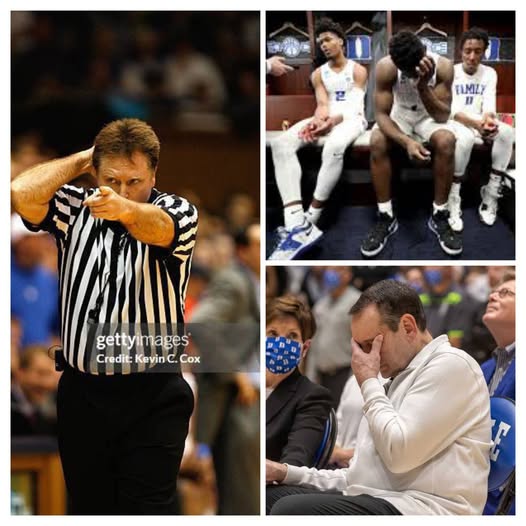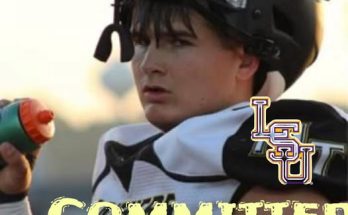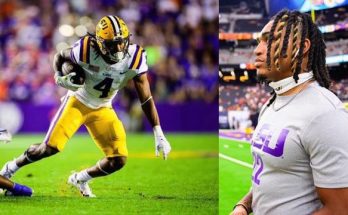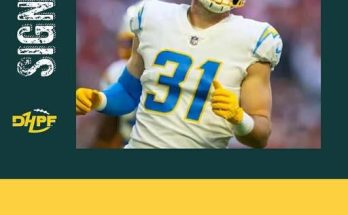Whistles and Wounds: The Most Controversial Calls That Shattered Duke Dreams
For Duke Basketball fans, the Brotherhood isn’t just about banners or buzzer-beaters — it’s a legacy steeped in passion, pride, and precision. It’s the unwavering belief in playing the right way, in developing talent, and in chasing excellence under the blinding lights of college basketball’s biggest stages. But with that legacy has also come heartbreak — not just at the hands of formidable opponents, but through the sharp sting of questionable officiating that seemed, at times, to tilt destiny in another direction.
Duke has stood atop college basketball’s mountaintop five times, cutting down nets and etching names into hardwood history. But for all the glory, there are moments — gut-wrenching, controversial, disputed moments — when championships or deep tournament runs were ripped away not by lack of preparation or execution, but by the shrill echo of a referee’s whistle. These are the moments that haunt the Brotherhood. The whistles and wounds that forever altered seasons, reshaped careers, and left fans asking the same maddening question: what if?
One of the most infamous examples came during the 1986 national championship game against Louisville. Duke, led by senior stars Johnny Dawkins and Mark Alarie, was poised to give Coach Mike Krzyzewski his first NCAA title. The Blue Devils had dominated the tournament and entered the final as slight favorites. But the game was physical and tense, and as momentum swung back and forth, several calls — or no-calls — began to pile up against Duke. One that stands out to this day is the non-call on a clear foul during a crucial Johnny Dawkins layup attempt late in the game. The contact was evident, Dawkins missed the shot, and Louisville surged ahead, ultimately claiming the championship 72-69. It wasn’t just one call that determined the outcome, but the cumulative weight of questionable officiating shifted the game’s rhythm. For Duke, it was a devastating loss — not just because of what was taken, but because of how.
Fast forward to 1998 — a team some argue was the most talented in Duke history. With future NBA stars Elton Brand, Shane Battier, Trajan Langdon, and Corey Maggette, Duke rolled into the NCAA Tournament as the overwhelming favorite. They reached the Elite Eight, where they faced Kentucky in a heavyweight rematch of the epic 1992 showdown. This time, however, it wasn’t a miracle shot but a whistle barrage that decided Duke’s fate. Kentucky, trailing for most of the game, mounted a comeback in the second half. The Blue Devils were whistled for 27 fouls to Kentucky’s 18, with key players like Brand and Langdon forced to the bench. In the final minutes, a phantom call against Battier, who was known for his textbook defensive positioning, gave Kentucky free throws that helped seal their 86-84 win. Duke, who had spent much of the year as the number one team in the nation, was sent home short of the Final Four. For many fans, the officiating in that game felt suspiciously inconsistent, especially given how much the Blue Devils dominated the first half. A dream season, full of promise and poise, was ended by a series of head-scratching calls.
Then there’s the 2010 regular season game against Georgia Tech, a game not played on the tournament’s biggest stage but one that still stings because of the sheer confusion it generated. In the closing seconds, with Duke trailing by two, Kyle Singler was clearly fouled on a shot attempt in the lane. The contact was blatant, yet no whistle blew. Moments later, Georgia Tech extended the lead at the free-throw line and sealed the win. Coach Krzyzewski, normally stoic in his public responses, was visibly frustrated, and the media echoed the sentiment. The loss didn’t derail Duke’s season — they would go on to win the national championship that year — but the moment reinforced a growing narrative that officiating often swings dramatically, and unpredictably, even against the most prominent programs.
Perhaps no game better encapsulates the agony of controversial officiating than the 2019 Elite Eight loss to Michigan State. Zion Williamson, RJ Barrett, and Cam Reddish formed what was arguably the most physically imposing Duke team since the early 2000s. Their presence was felt all season, and the hype around them was unlike anything college basketball had seen in years. In the Elite Eight, however, Duke was met not just by a resilient Michigan State squad, but by a game marked by uneven officiating.
The frustration began early, with Zion — the heart of Duke’s dominance — picking up ticky-tack fouls that limited his aggression. Meanwhile, Michigan State’s physical play went largely unchecked. One pivotal moment came late in the second half when Zion drove hard to the basket, absorbed heavy contact, and missed the shot. No call. Moments later, on the other end, a marginal touch foul was whistled against Duke, giving the Spartans free throws and a chance to take control. The game ended in a one-possession loss for the Blue Devils, 68-67. Despite Zion’s heroics and the team’s grit, the headlines afterward centered on the officiating, which had left even neutral observers scratching their heads. The game felt like it deserved to be decided by players, not whistles — and yet, the whistle was the loudest voice in the arena.
It’s easy to say that referees are human, that mistakes are part of sports, and that calls even out over time. But in college basketball’s single-elimination format, one bad call doesn’t just alter a game — it can erase a season, deny a legacy, and change the course of careers. Duke fans understand this better than most. The program’s visibility, its polarizing status in the national media, and the intensity with which it is scrutinized mean that every close call — for or against — is magnified tenfold.
But what makes the wounds of these whistles so deep is the sense of stolen opportunity. Duke doesn’t rebuild, it reloads, but not every team is the same. The 1999 squad, which lost to UConn in the title game, did so partly due to a stunning foul call on William Avery that sent UConn’s Khalid El-Amin to the line in the final minute. That single play, like so many others, turned the tide. The 2004 team, featuring J.J. Redick, Luol Deng, and Chris Duhon, saw their Final Four hopes dashed against UConn after Redick was hammered on a shot with no call. UConn took the lead seconds later and never looked back. It wasn’t just defeat — it was disbelief.
These aren’t excuses. Duke has won plenty of games thanks to brilliance, depth, and, at times, favorable breaks. But to ignore the moments when whistles changed outcomes is to erase part of the story. It’s not about blaming officials for every loss. It’s about acknowledging that in a game decided by inches and seconds, a single call can be the difference between immortality and memory.
Coach K, with his iron will and unmatched preparation, never allowed his teams to dwell publicly on bad officiating. But behind closed doors, the frustration was real. Because for every championship he raised, there were years where his teams were just as talented, just as prepared, and just as deserving — only to see a questionable whistle tip the scales.
For the Brotherhood, these moments aren’t just scars. They’re part of the bond. The knowledge that even the best teams don’t always get the storybook ending, that sometimes the pursuit of greatness is derailed not by a better opponent, but by a misjudged moment. That pain, while bitter, is also unifying. It fuels the next wave of players, the next drive to return, to push harder, to leave no doubt.
Duke fans remember the championships — 1991, 1992, 2001, 2010, 2015. But they also remember the heartbreaks, the wounds of 1986, 1998, 2004, and 2019. Because at Duke, it’s not just about the wins. It’s about the fight. And sometimes, the fight is against more than just the team across the court. Sometimes, it’s against the very call that decides everything.
In the end, the Brotherhood survives those whistles. But it never forgets them.



